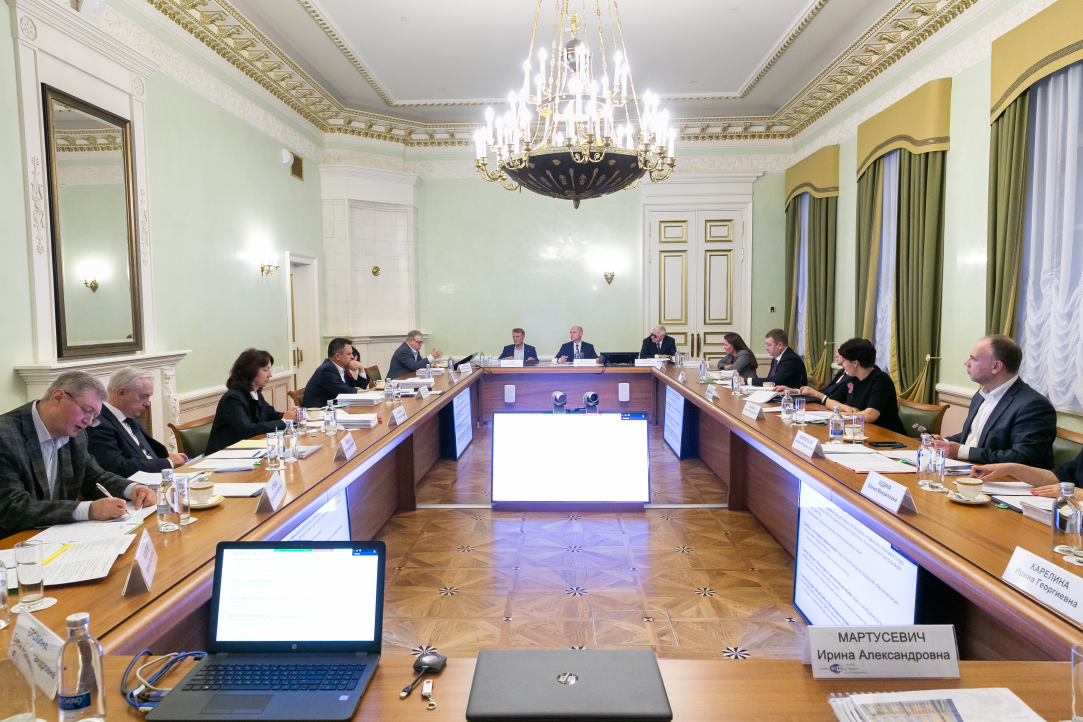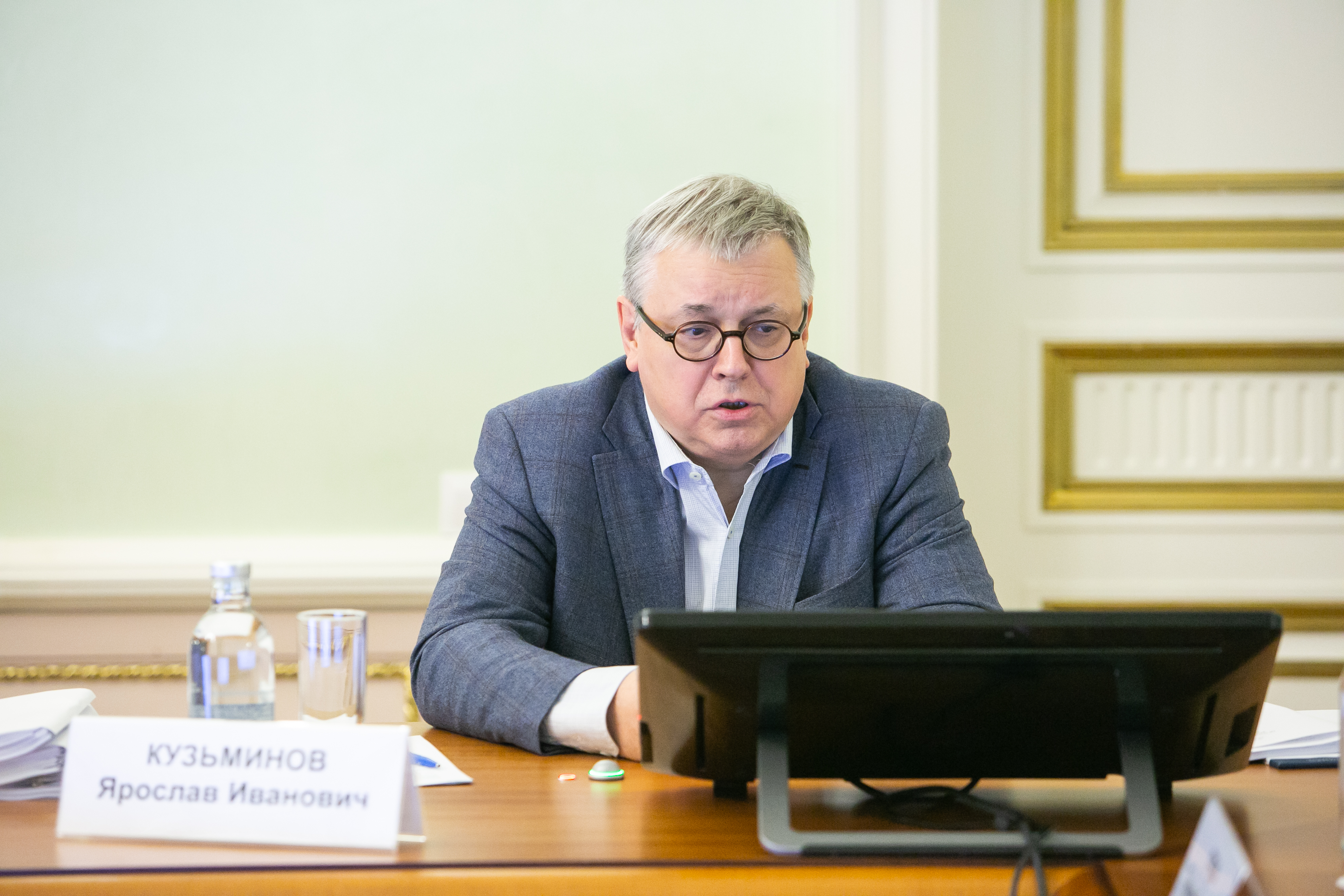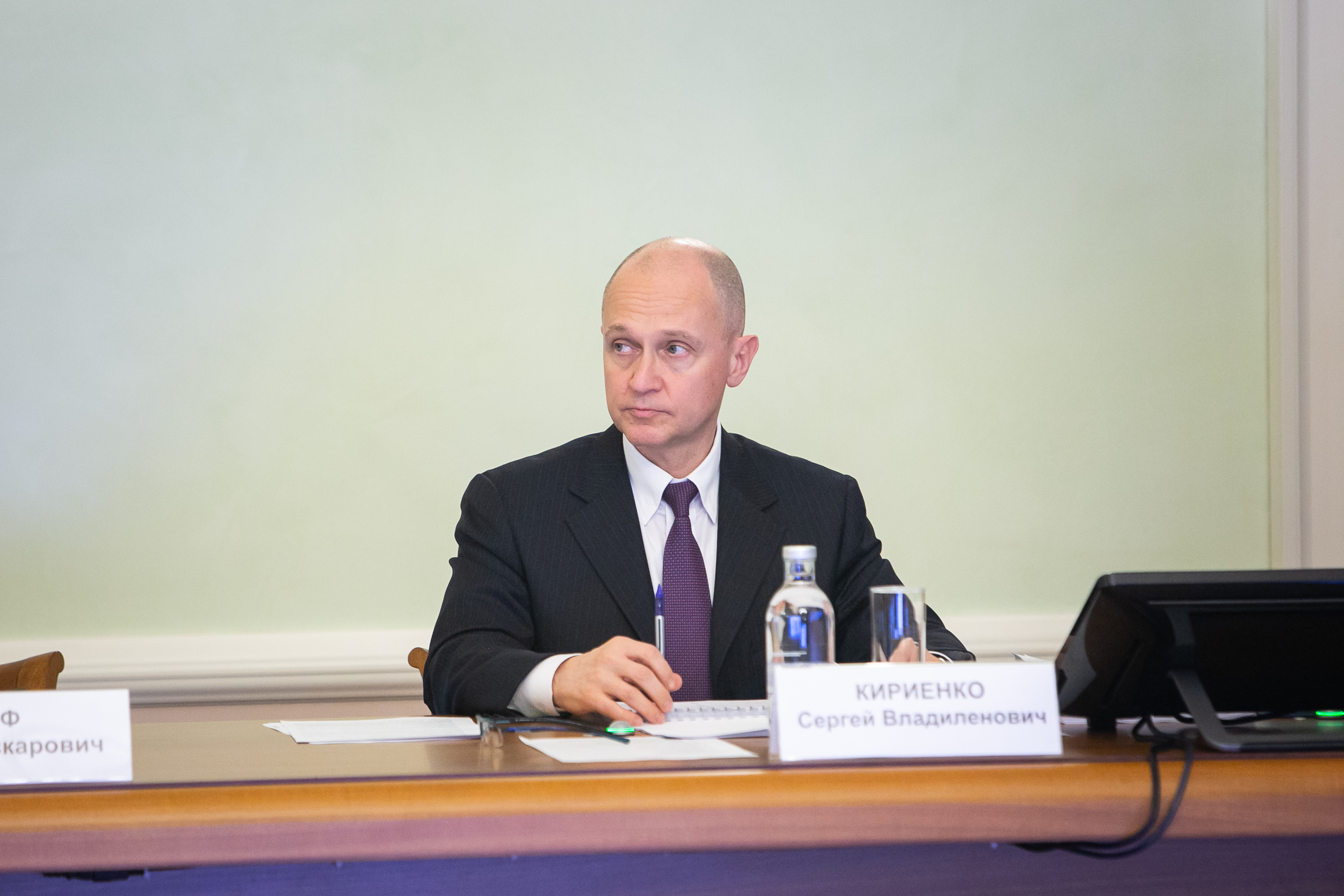HSE Supervisory Council Approves the Implementation of the HSE Development Programme up to 2020

The HSE University Supervisory Council chaired by Sergey Kiriyenko, First Deputy Chief of Staff of the Presidential Administration of the Russian Federation, gathered for its first on-site meeting after the start of the pandemic.
The meeting summarized the results of the implementation of the HSE Development Programme up to 2020. The programme was completed earlier than planned, in 2018, Rector Yaroslav Kuzminov noted as he spoke about the key stages of the university’s development. ‘In 2010 (when implementation of the programme began – editor’s note), HSE University already was one of the biggest universities in economics with acknowledged quality of education, and a leading expert centre. Meanwhile, our research agenda was falling behind. Then, there was a phenomenon that we felt but could not explain: our expertise and teaching were secondary, based on someone else’s academic knowledge,’ he said.

By 2020, HSE University has become a research university, a recognized actor on the global market. Today, the university is among the leading institutions in all key indicators. ‘An unprecedented growth of the university scale has been accompanied by growth in terms of quality,’ Rector emphasized. As a result, 82% of its graduates work in the field of their specialization, which is among the highest shares in Russian higher education, while their monthly salaries during the first year after graduation exceed 100,000 roubles.
According to SuperJob, starting salaries of HSE University graduates, with local campuses, in 2020, were as follows:
Economics: 115,000 roubles
Law: 100,000 roubles
Engineering: 145,000 roubles
HSE University has always been an exceptional university for Russian students. Many students who are offered scholarship packages at other universities nonetheless choose to study at HSE even if they are not awarded financial assistance here. But now, the University has managed to gain a similar reputation among international students as well. It offers the country’s highest quality of teaching and learning for students from abroad.
‘Russia has no “special” national academic research, as people sometimes say. Russia has national interests, which should be supported by real research — global and modern research that does not accept “inventing wooden wheels” and plagiarism,’ Yaroslav Kuzminov said. Over the past decade, the number of teachers who have publications in international academic journals has grown from 10 to 70%.
HSE University is actively developing cooperation with local universities, from its ‘mirror laboratories’ to double-degree programmes. In 2021, there will be seven such programmes. ‘If we do not improve the quality of education in the Russian regions proactively, half of them will simply have no future,’ Rector Kuzminov said. HSE also continues to develop the HSE-funded Social Elevator programme, which offers university education to disadvantaged children. Yaroslav Kuzminov suggested that it could be worth expanding this programme to all national universities, with the use of state funding.
2020 has become an endurance test for the whole educational system in Russia, and HSE University has successfully handled it
Within literally a few days, all classes were moved online; digital study offices appeared; teachers introduced additional consultation hours. HSE even managed to expand its continuing education offerings. This year, HSE University entered the top 50 range in several global subject rankings for the first time ever.
HSE University acted as a creator and methodological supporter of the university ‘third mission’, which is understood as a contribution to the social, cultural, and academic development of society. It’s high time for universities to stop being ‘ivory towers’ and actively develop as expert, academic, and cultural centres of their respective cities.
HSE University has become the first in the city to redevelop its venues, creating ‘new educational spaces for the new educational model’: co-working areas, modern libraries, and professors’ clubs.

Supervisory Council Chair Sergey Kiriyenko noted that the goals have not only been reached, but largely exceeded. ‘I would particularly like to thank HSE University for their contribution in reviving the system of Olympiads and participation in forming the Presidential staff reserve,’ he said.
See also:
HSE Launches English-Language Strategic Development Website
The new website makes information on the university’s strategic development initiatives and opportunities available to international colleagues and partners. The Strategic Development Programme Office has launched anEnglish-language website to promote the implementation of HSE University’s integrated development programme. The website is an ‘entry point’ for international partners and students, informing them about the university’s strategic priorities, goals, and plans.
HSE University Leads in Four Subject Rankings of ‘Three University Missions’ Rankings
In 2023, HSE University took first place in the ‘Three University Missions’ subject rankings in economics, sociology, management and psychology. The university also entered the top three in terms of the number of subjects covered by the rankings.
'We’re Moving On to the Next Stage of Digital Transformation'
Dmitry Bondar has served as Senior Director for Digital Transformation at HSE University since January 2021. Since then, the university has introduced and developed numerous new, state-of-the-art information systems. Dmitry Bondar is responsible for ensuring high rates of digital transformation and the good performance of HSE's IT Office. In his interview, he speaks about the integration of new information systems, project management at the IT Office, import substitution in IT, engaging with students, and plans for the current year.
‘The Project Competition Will Kickstart New Research Collaborations’
HSE University has announced the launch of a project competition in basic science research for intercampus departments of the university. The competition is aimed at supporting research as part of the HSE University Development Programme for the Period until 2030.
‘Our Development Programme Is a Meaningful Vision of the Future’
The HSE University bulletin (Okna Rosta) spoke to Rector Anisimov about the details and significance of the newly approved Development Programme, changes to academic life due to the pandemic, the role of digitalisation, and the university’s ‘soft expansion’
Russian Government Approves Programme of HSE Development until 2030
The Programme of HSE Development until 2030 has been approved by Prime Minister Mikhail Mishustin’s order. The document outlines the goals, tasks and responsibilities of the government and HSE University for its strategic development. According to the programme, the university’s strategic goal is its continuing development as a leading research, educational, analytical, consulting, and project university, which can compete head-to-head with the world’s best universities.
‘Feeling Like a Full-Fledged Part of the University Community’
HSE University is focused on achieving leadership not only at the national level, but also internationally, so internationalisation has been and remains a priority area of the University's development strategy. In an interview with the HSE bulletin Okna Rosta, Yulia Grinkevich, Director for Internationalisation, talked about various approaches to internationalising the campus environment, the progress HSE has made in this regard to date, and the tasks that remain in the 2030 HSE University Development Programme.
HSE University to Establish Graduate School of Business
HSE Graduate School of Business will open on September 1 of this year. The Academic Council decided on the School’s creation within the framework of HSE University’s 2030 Development Programme, which aims at enhancing the University’s global competitiveness.
HSE Academic Council Approves University Development Programme for 2030
On January 24, the HSE Academic Council approved the new University Development Programme for 2030, which the Council had been drafting for the past year. Members of the Academic Council also discussed the status of the university’s digital transformation.
'We Want HSE University to Develop Centres of Excellence'
The HSE Look is glad to present the second part of the interview with Rector Yaroslav Kuzminov, originally taken by our flagship bulletin Okna Rosta. This part focuses on new educational tools as well as old traditions, on cooperation with regional universities and the transformations to be achieved in the upcoming decade.


